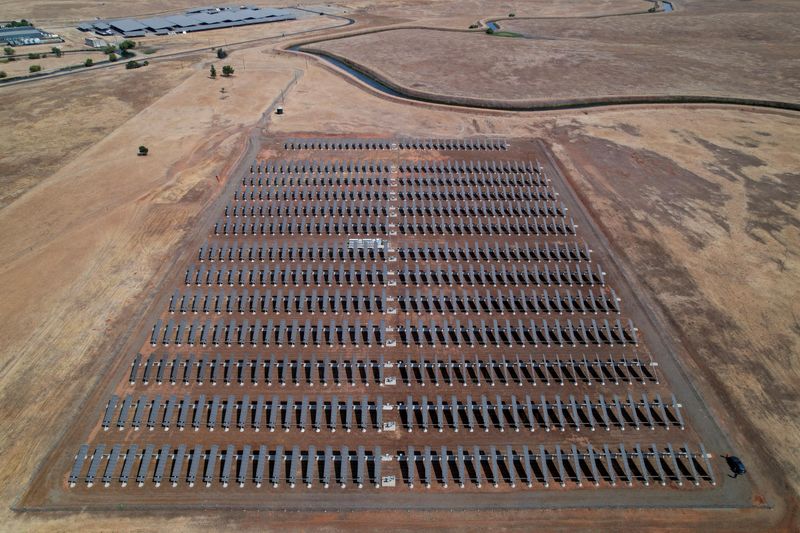US solar industry downplays climate in strategy for Trump era
(Reuters) - The U.S. solar industry unveiled its lobbying strategy for the incoming Trump administration on Thursday, promoting itself as a domestic jobs engine that can help meet soaring power demand, without referencing its role in combating climate change.
The policy agenda marks a stark shift in tone for the solar sector, which is a major beneficiary of subsidies contained in outgoing President Joe Biden's landmark 2022 climate change law, the Inflation Reduction Act (IRA).
President-elect Donald Trump has vowed to rescind the law, something that would require action by Congress.
The Solar Energy Industries Association (SEIA), the top U.S. solar trade group, listed its top 10 priorities for the first 100 days of Trump's administration and described solar energy as key to American energy security.
It called on the government to support policies to expand domestic solar manufacturing and reduce dependence on China, and urged looser restrictions on infrastructure investment and grid connections for solar projects.
It also asked the incoming administration to keep taxes low and support consumer energy choice.
"Solar is critical to meeting America's growing need for electricity and providing power for manufacturing, data centers, cryptocurrency, and AI," SEIA CEO Abigail Ross Hopper said.
"This is a roadmap for the Trump administration and Congress to capitalize on strong federal solar and storage policies and achieve their vision of a dominant American energy sector."
The document did not mention climate change or the IRA. The SEIA did not respond to a request from Reuters for comment on the report.
In the policy agenda it released in 2020 ahead of Biden's inauguration, SEIA advocated for a price on carbon and mentioned climate change several times.
Biden's administration viewed solar energy as critical to decarbonizing the power sector to fight global warming.
SEIA also did not directly mention tariffs, something it had asked the Biden administration to reduce.
The trade group has long opposed trade tariffs that raise costs for solar installers, but Trump has pledged to use them aggressively as part of his economic agenda.
SEIA noted in a statement that U.S. solar capacity grew 128% during Trump's first term in office.
Some priorities have not changed, including calls for increased solar development on public lands, improved grid access and more support for domestic manufacturing.
Source: Investing.com
